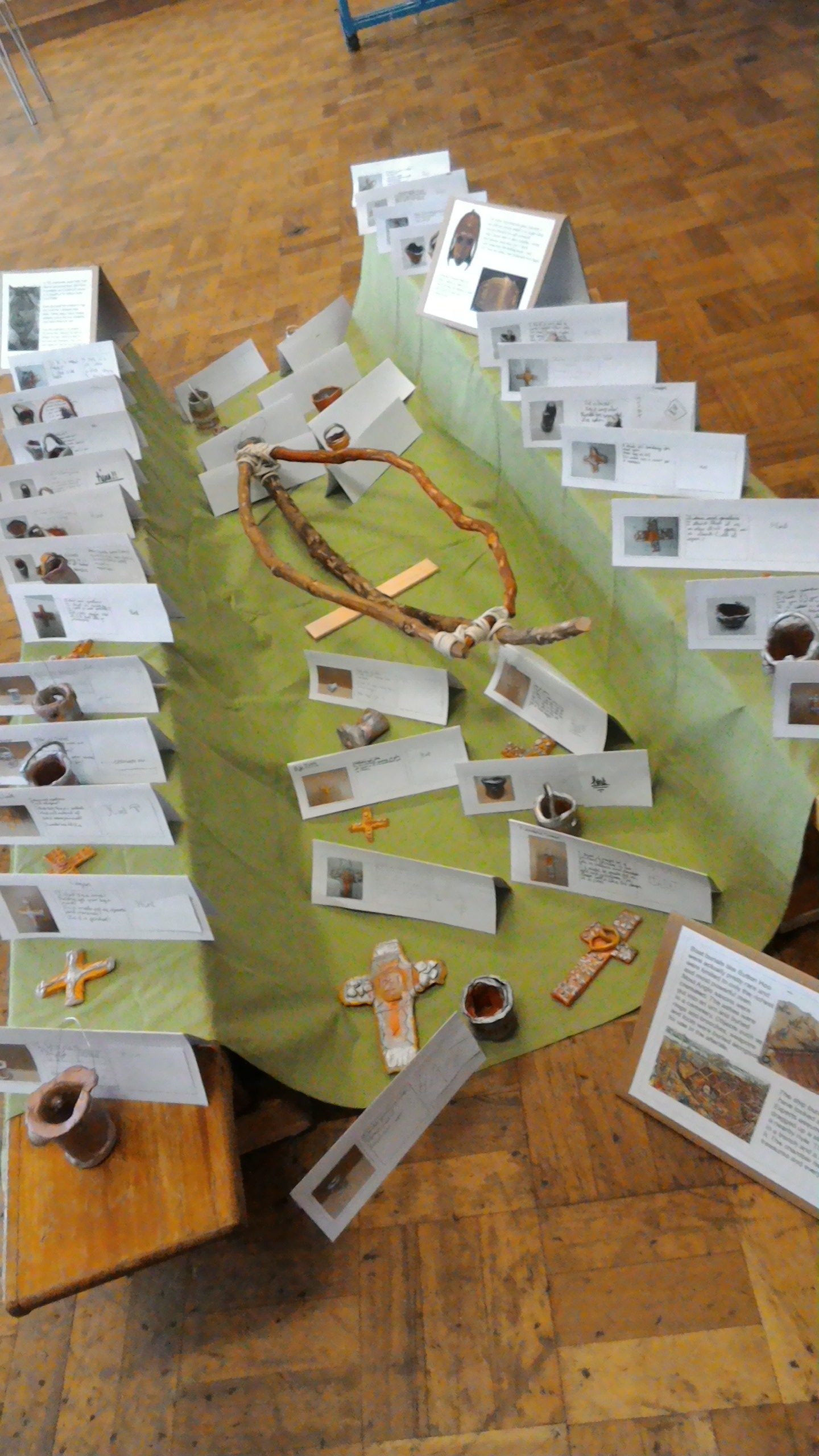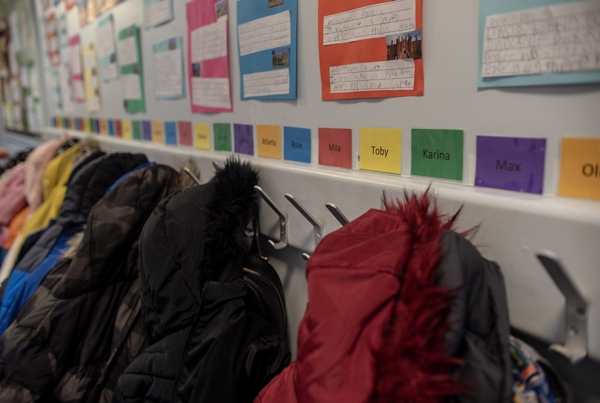Vision and Aims
Learning and Growing together
We expect our children to achieve the highest possible standards according to their ability, to develop their talents to the full, and to become more sensitive, confident and positive members of society.
Our Vision
For every child to be inspired to fulfil their own unique potential, to develop confidence, independence and resilience for the life ahead of them in a nurturing, supportive and dynamic school environment at the heart of the local community.
Our Mission
To enable all learners’ access to learning through the provision of:
- Differentiated, in-depth, cohesive and creative learning programmes in line with requirements of the National Curriculum but with a broader focus beyond test results, including creativity in the arts, science and the environment, and social and physical development
- Highly effective teachers, focused on improving student outcomes, through their commitment to ongoing professional development, quality teaching, evidence-based practices, coaching and mentoring and collaboration
- A quality, inclusive learning environment, with enriching and engaging resources that is responsive to pupil voice
- Opportunities for parents, guardians and the community to contribute to learning forums to inform decision making
- Adaptive teaching methods
Our mission statement is put into action through existing policies, processes and working practices with key measurable learning and teaching developments detailed by the School Improvement Plan. This is supported by the current enabling strategies:
- Implementation of a step change in ICT capacity to position the school at the forefront of the use of digital technology for learning
- Upgrade in buildings and rolling programme of school physical environment maintenance
- Development of creative and innovative learning spaces to maximise pupil’s potential
- Identify opportunities for Income generation
- Actively develop strategies to address pupil and staff well-being
Monitoring the Strategy
Governing Board:
- Annual review of the Strategic Plan and agreement of enabling strategies in term 1 of the academic year
- Adoption of School Improvement Plan in term 1 of the academic year
- Ongoing monitoring through headteacher reports to governing board meetings
- Governor school visits to meet and review operationalisation of the Strategic Plan with staff and senior management
Headteacher:
- Development and review of School Improvement Plan in consultation with stakeholders including pupils, parents, staff and governors
- Delegation of responsibilities to school staff to deliver on aspects of the Strategic Plan
Consultation Findings
In developing our Vision and Mission Statement, we asked the staff and children and Norris Bank what they think the school’s values are and where our strengths lie and we have listened to that feedback a summary of which is provided below.
Nurturing and Supportive
We work hard to create a nurturing atmosphere where each member of the school feels safe and valued. We aim to develop respect for each other and ourselves and to promote positive self-esteem and self-confidence.
We welcome and celebrate the diversity of the school community and celebrate the ‘uniqueness’ of each child. We foster an appreciation, understanding and respect for all cultures, races and religions. The children tell us they are proud that we are such an inclusive school.
Striving for Excellence
Norris Bank encourages everyone to excel by setting high expectations for behaviour and achievement in a stimulating environment.
We provide a broad, balanced and challenging curriculum. This enables all children to develop a wide range of knowledge, skills and understanding, to demonstrate their strengths and address areas for development with confidence.
Our children tell us that they find their lessons interesting, and we encourage our teachers to deliver lessons in innovative and engaging ways.
We have worked hard to achieve the Silver Award in Science, gained in conjunction with the University of Manchester. This gives children the opportunity to deepen their scientific learning.
Personal and Social Development
Our Grow Values and Restorative Approach are now firmly established, encouraging the children to take responsibility for their work, to build independence and resilience and to develop effective ways of resolving conflict and developing empathy and respect for others.
The School Council, comprised of representatives from each class, encourages children to be involved in shaping their school experience and is a vital tool in ensuring continuous improvement in all aspects of school life.
The children enjoy many sporting opportunities, such as participation in tennis, football, swimming and netball tournaments and competitions within the local schools’ community. Sports lessons within the school give the children the chance to try a huge range of sports such as dodge ball, hockey, basketball and rugby.
Through all of the above, and in particular by teaching the children about how they learn and ways they may improve their own learning, we aim to develop enquiring minds and to give the children the skills and motivation to continue their learning journey through into adulthood.
Creativity
We celebrate creativity at Norris Bank and the children say our annual Big Arts Exhibition is a highlight of the school year, with every child having a key part to play in bringing the event together. Other local schools are following suit and putting on their own arts exhibitions.
Music plays an important role at Norris Bank. All children are given the opportunity to learn a range of instruments and we offer tuition within the school day in brass, woodwind and strings. Our school choir have performed in the Bridgewater Hall and Manchester Cathedral.
Our children are encouraged to take an active role in our school garden, helping to maintain and nurture the plants and vegetables. The vegetables grown are used in our school meals, giving the children an insight into how the food we eat reaches our plates. We involve the wider community in the school garden, regularly inviting parents and carers to help with gardening activities.
We have developed our own Forest School in the school grounds, which gives the children a unique opportunity to enhance their teamwork, communication and problem-solving skills while learning about their environment.
These activities ensure that the focus is not simply on academic achievement, but on developing the child as a whole.
Community Links
We believe that fostering strong links with other local schools and the Heatons community as a whole has great benefits for the school and encourages the children to become active members of their local community.
We have partnered with local businesses, such as Julian Wadden estate agents, to run competitions and fundraising events, providing much-needed funds for school improvements like a new school projector.
Our PTA is extremely active and strongly engaged with parents and carers. The PTA has also built strong relationships with local businesses, who regularly support the school’s fundraising efforts.
We seek out regular, constructive feedback from parents and carers about all aspects of school life and seek to make positive changes in response.
Strategic Developments
Key strategic developments that have contributed to the current school position.
- 2024 development is in the pipeline for a dedicated space for children’s wellbeing and interventions
- 2024 continued professional development for teachers on NPQ’s
- 2024 development of pastoral support with a newly trained ELSA
- 2023 continued professional development for teachers on NPQ’s
- 2023 Renovation of the KS2 trim trail
- 2022 The school joined the North West Maths hub
- 2020 the school curriculum server moved over to be cloud based
- 2019 Development of remote learning and use of google classroom
- 2018 Conversion of the school caretakers bungalow to ‘The Hive’ for enrichment activities
- 2018 Establishment of Branching Out before and after school provision
- 2015 Redevelopment of KS1 including addition of ‘learning pod’ to enable cohort of SEND pupils to access provision
- 2015 Renovation of KS1 and reception area including the addition of all weather outdoor learning provision
- 2014 Forest School area development
- 2012 Addition of 2 new year 6 classrooms to enable move to 2 form entry (capacity reached 2016)
- 2008 Development of School Garden
- 2004 Link corridor to allow access between KS1 and KS2


